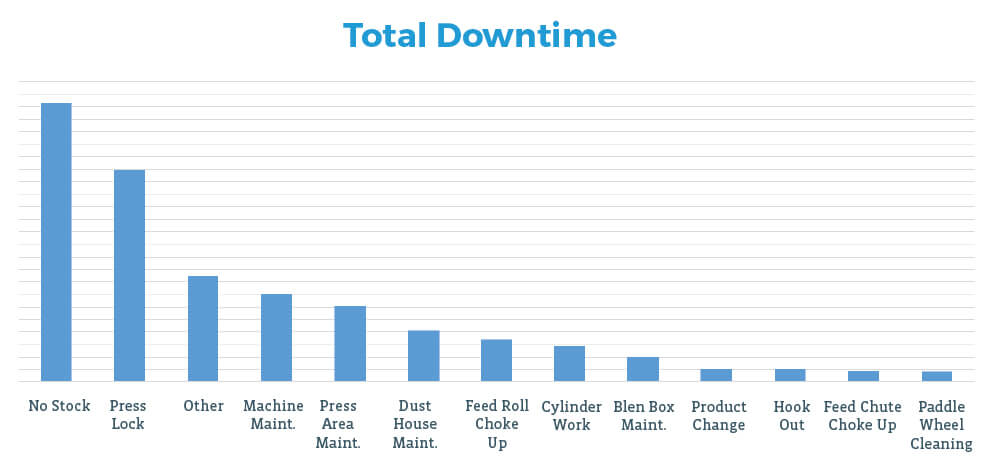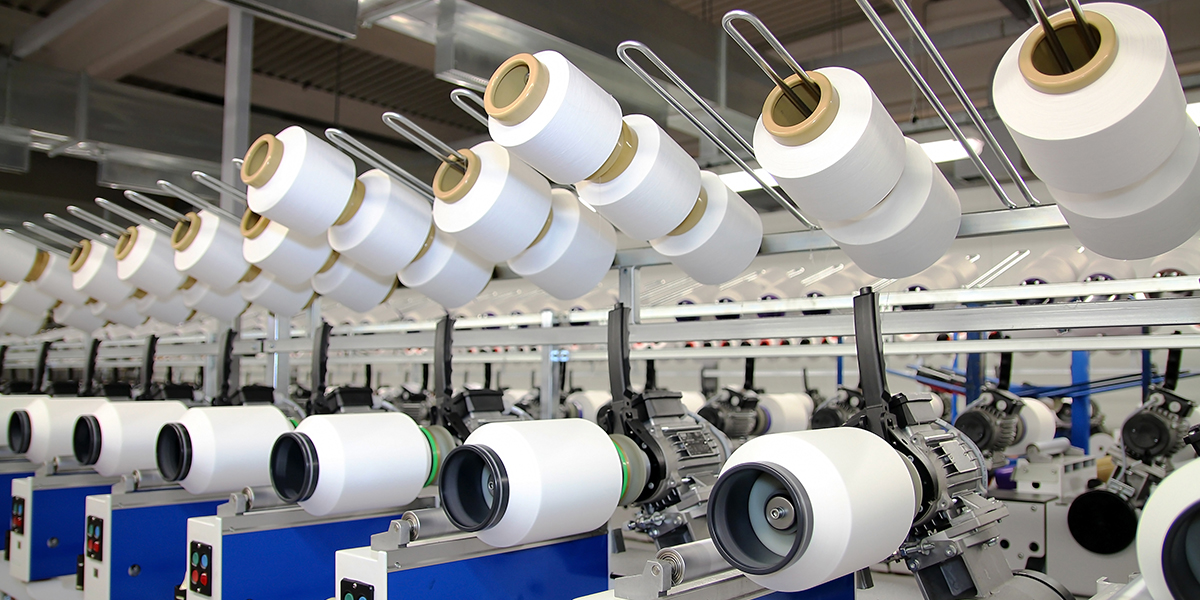A three-pronged improvement plan focused on maintenance capabilities, effective daily management, as well as leadership process rigor and problem-solving, helps a textile recycler to implement, immediately realize, and sustain a clear financial impact.
The company, which is private equity-owned with operations in the U.S., Honduras, and Nicaragua, provides textile waste management services and recycled fiber products.
They are a leading textile recycling company, that takes great pride in its contribution to protecting the global environment by keeping waste fiber from being incinerated or dumped in landfills. The company’s recycled cotton, for example, requires no land, no water for irrigation, no fertilizers, and no pesticides. Such environmental benefits are only possible because there’s a healthy market for recycled fiber and the company can make money capturing and re-purposing it.
At one of the company’s production facilities, daily output had fallen to 85% of their targeted pounds per day. As a result, labor costs per pound and the associated fixed cost allocation had risen to unsustainable levels. Internal analysis of the loss drivers identified downtime due to a lack of materials at the bailing presses, unplanned downtime because of mechanical issues, and labor shortages as the primary drivers of the erosion.
Pareto of Reasons for Downtime
Challenge: Daily production down by 15% causing labor costs per pound and fixed costs absorbed to reach unacceptable levels. The organization was struggling with equipment breakdowns and production issues.
Following an in-depth diagnostic assessment, TBM worked with managers and employees to implement a rapid improvement plan that would have both a near- and long-term impact on the company’s profitability. In this case study we present some of the production and management changes, which had an immediate financial impact that we helped implement and sustain.
Solution: Make significant improvements in equipment maintenance skills and capacity, establish a more effective daily management system and make strategic hires in engineering, plant and maintenance management capabilities.
The company sources textile waste from large apparel cut-and-sew operations and converts the waste into higher-valued remanufactured fiber materials. To return output to acceptable levels our assessment contributed to the development of a detailed improvement plan that would return output to at least 1,000 pounds per day (indexed), and ultimately achieved 1,250 pounds per day. The three-pronged plan included:
- Develop Maintenance Capabilities — Grow and enhance Maintenance staff skills, deploy total productive maintenance practices, install a Maintenance Management System (MMS), and develop standard work.
- Establish a More Effective Daily Management System — Ensure alignment of improvement priorities to financial objectives, improve the Key Process Indicator (KPI) management, structure management’s responsibilities, develop leader standard work, and create a layered auditing process.
- Establish Leadership Process Rigor and Embed Problem-Solving Capabilities — Define leader standard work, provide supervisor training to manage for daily improvements (TBM calls it MDI), and train/coach problem-solving skills.
A management system – good or bad, whether it’s recognized as such by business leaders or not – is how a company gets things done. It’s how value is created and how shipments get pushed out the door every day.
Results: During the engagement, output improved by 20% per day. With continued focus, output gains of nearly 45% have been realized.
Applying the tools and techniques we introduced, the company sustained its gains and continued to make forward progress after our initial engagement concluded. Within nine months, they increased the output of pounds per day by an additional 25% resulting in a total gain of 45% from the beginning of the engagement.

